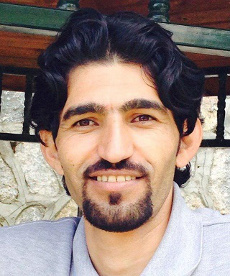UN Special Rapporteur Jahangir to UN Third Committee: Iran Human Rights Situation “Deeply Concerning”
On October 25, 2017, UN Special Rapporteur on the situation of human rights in Iran Asma Jahangir presented her periodic report (first published in August of 2017) to the UN’s Third Committee. She spoke of a “blanket of fear and intimidation” directed towards Iranians who have made contact with the Special Rapporteur’s office and their families, and urged Iranian judiciary authorities immediately cease the execution of juvenile offenders and review their policy of capital punishment – one of the world’s most aggressive.
Read the full text of the statement from the Office of the High Commissioner on Human Rights below:
GENEVA (26 October 2017) – There are encouraging signs of progress in Iran’s human rights picture, but these render the reports of violations all the more painful and the need for institutional reform all the more pressing, a UN expert on the country’s human rights situation said Wednesday.
“The current human rights situation in Iran is deeply concerning in many respects, but I also believe that there are some encouraging signs which I hope will be realised in the near future,” said Special Rapporteur Asma Jahangir.
“I continue to hope that the human rights situation will improve in the country through the efforts of the Government. This will require an enabling political environment both at the national and at the global level,” she added.
Presenting a full report to the UN General Assembly, the expert said positive developments included a high turnout in presidential and local elections, positive statements on human rights made by President Hassan Rouhani, and the Charter on Citizen’s Rights unveiled by the president last December.
But she said numerous other concerns over civil and political rights remained, including restrictions on the rights to freedom of expression, opinion, information.
People working in the media, including journalists working abroad, reported being interrogated, placed under surveillance, and other forms of harassment and intimidation, she said. Human rights defenders were suffering “harassment, intimidation, and prosecutions, some prisoners of conscience were on hunger strike, and some dual nationals had been arbitrarily deprived of their liberty.
Ms. Jahangir called for progress to protect the rights of women “in practice, and in legislation”, to ensure the independence of the judiciary, and to ensure remedy, reparation and truth for victims of rights abuses.
Iran’s ethnic and religious minorities continued to face challenges including the unabated discrimination against and targeting of the Baha’i community which threatened their right to a livelihood, she added.
Ms. Jahangir said Iran’s use of the death penalty was another cause of concern. A new anti-narcotics law could reduce its use and some delay executions, but she highlighted the execution of four juvenile offenders over the past year.
“I urge the Iranian authorities to urgently abolish the sentencing of children to death, and to engage in a comprehensive process of commutation of all death sentences issued against children, in line with juvenile justice standards,” the Special Rapporteur said.
Ms. Jahangir added her praise for all those working for human rights in Iran, including those sharing information with her.
“I would like to pay tribute to those who continue to speak out and provide information to my mandate, amidst a blanket of fear and intimidation directed towards them and their families,” said the Special Rapporteur.





 My Interrogator Said: You Are An Ass, And Asses Do Not Merit Human Rights
My Interrogator Said: You Are An Ass, And Asses Do Not Merit Human Rights